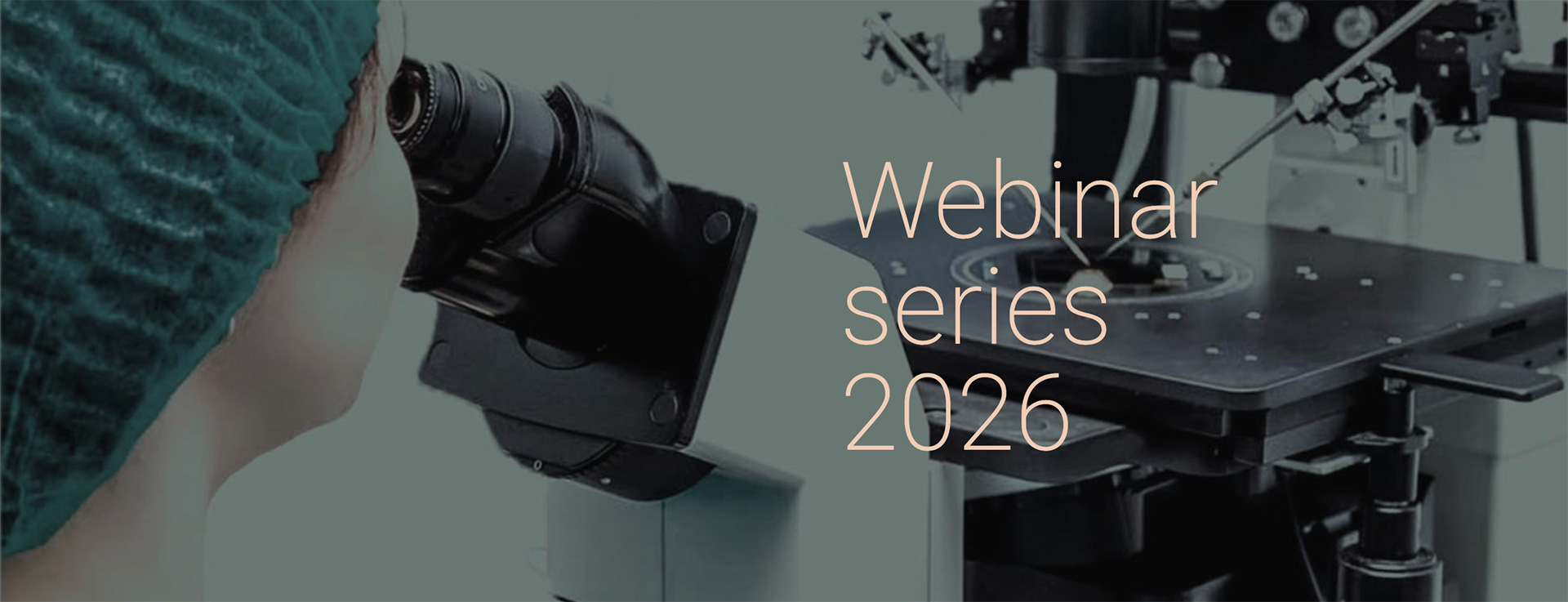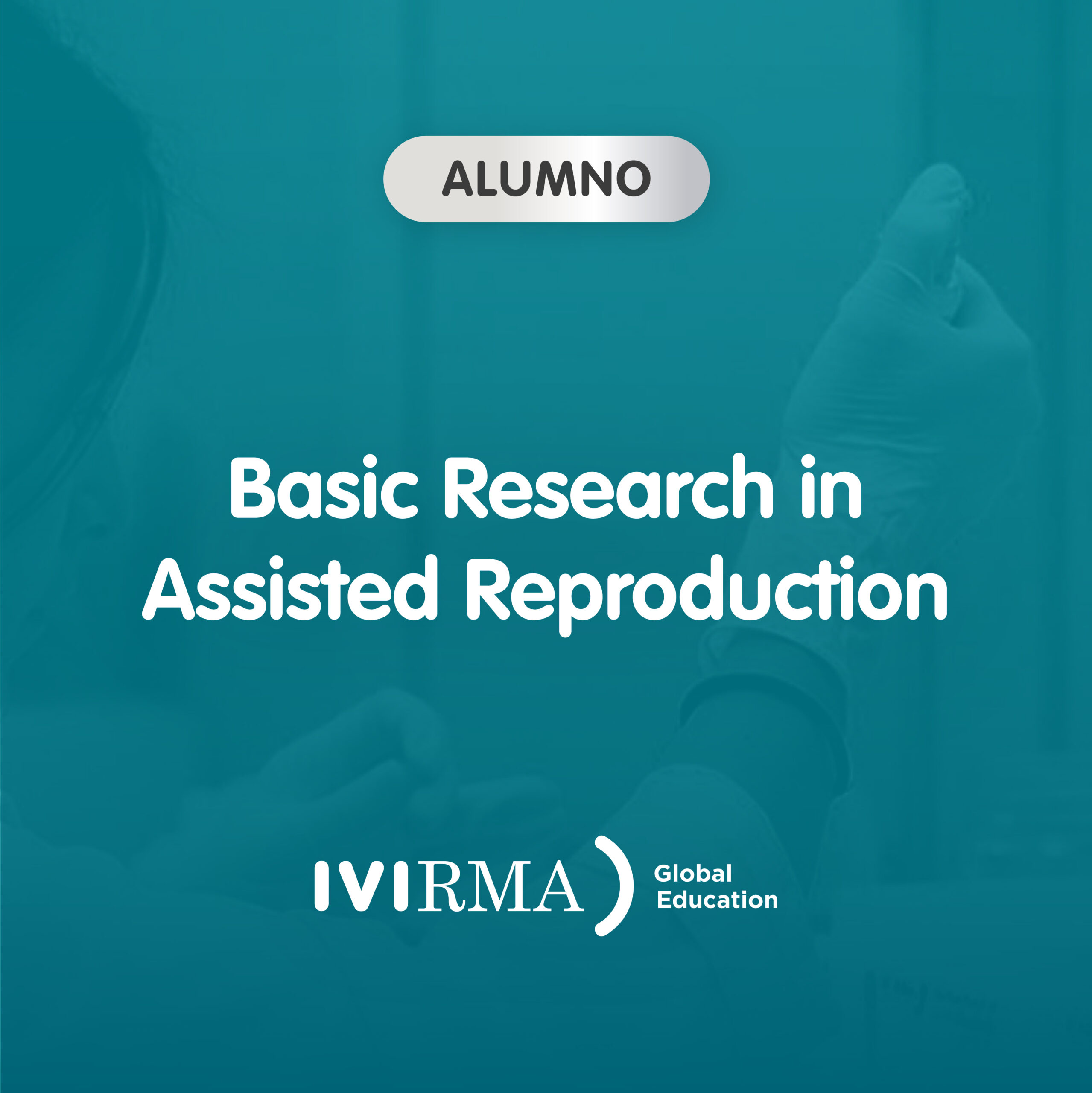Online course in Basic Research in Assisted Reproduction
MODALITY: Online
CENTER: IVIRMA Global Education
CREDITS: 20 ECTS
Online course in Basic Research in Assisted Reproduction
MODALITY: Online
CENTER: IVIRMA Global Education
CREDITS: 20 ECTS
Online course in Basic Research in Assisted Reproduction
AREA:
LANGUAGE: English
ProgramData

Hours:
20 theoretical

Enrollment:
350 âŽ

Type:
Online courses

Location:
IVIRMA Campus
Editions
Description
This course will explain different molecular and cell biology techniques that are used most frequently in the field of assisted reproduction. Among them, we will consider techniques to study nucleic acids such as PCR, quantitative PCR, and expression arrays.
Regarding the study of proteins, we will include Western blot, ELISA, immunohistochemistry and global proteomic techniques such as DIGE or liquid chromatography coupled to mass spectrometry. In addition, we will also explain how to work in a cell culture laboratory, and we will detail several cell models that are usually handled in research such as immortalized cell lines or animal models such as rats or mice.
We will also study massive sequencing techniques, introduction to statistics and all aspects related to the elaboration of a research project.
Important information:
The online course will be carried out through the e-learning platform: IVIRMA Campus. The student will receive a message with the access information and credentials 24/48 hours before the start of the course.
IVIRMA Campus can be accessed from Windows computers (7, 8 or 10) or Mac, using Chrome or Firefox in its last three versions. Access from mobile devices is not supported and does not ensure the correct operation of the course.
To successfully complete the training and obtain the corresponding certificate, the student must obtain a percentage greater than or equal to 70% of correct answers in the final evaluation. To do this, you will have two opportunities to take the exam.
Biomedical Professionals, Biotechnologists, Andrologists and Embryologists
 20 ECMEC's
20 ECMEC's
Academic information
Competencies
Learning outcomes expected to be acquired by the student at the end of the course:
- Recognize the fundamentals of basic research, emphasizing the lines of research related to Human Reproduction.
- Apply to Human Reproduction basic research techniques, including cell culture, isolation and study of proteins (proteomics) and nucleic acids (genomics).
- Recognize the process of preparation and classification of research projects.
- Apply the methodology of practical research: state of the question, working hypotheses, search for sources, reasoned presentation of arguments and formulation of conclusions.
- Develop a critical point of view on published articles.
Course Coordination:
Francisco DomÃnguez HernÃĄndez
View profileProgram
1. Basic Research in Assisted Reproduction
2. Isolation techniques and study of nucleic acids
3. Isolation techniques and study of proteins
4. Morphological location. Immunohistochemistry. Confocal and electron microscopy
5. Cell culture. Culture of human endometrial epithelial and stromal cells
6. In vivo studies on animal models. Model for endometriosis studies
7. Omics as a non-invasive diagnostic tool
8. Massive sequencing applied to reproductive medicine
9. Mitochondrial DNA: the energy of the preimplantation embryo
10. Innovation and research
11. Introduction to statistics I
12. Introduction to statistics II
13. Introduction to statistics III
14. Introduction to research and good clinical practices
15. Developing a research project
16. Functions and responsibilities of the participants in a clinical trial
17. Drug development process
18. Classification of research projects
19. Use of research results: publication of results
20. How to write a manuscript
21. Ethics within publications
Related courses

Online
Molecular control of follicular dominance and atresia – Casarini
Start: 17/02/2026
Webinars
Course fee:
Free

Online
Past, present and future of sperm assessment -Garrido
Start: 18/02/2026
Webinars
Course fee:
Free

Online
Embryo plasticity: cellular and molecular aspects – Coticchio / Ottolini
Start: 24/02/2026
Webinars
Course fee:
Free
20 theoretical
IVIRMA Campus
350 âŽ
Program Data
IVIRMA Campus
Intended for
Biomedical Professionals, Biotechnologists, Andrologists and Embryologists
Description
This course will explain different molecular and cell biology techniques that are used most frequently in the field of assisted reproduction. Among them, we will consider techniques to study nucleic acids such as PCR, quantitative PCR, and expression arrays.
Regarding the study of proteins, we will include Western blot, ELISA, immunohistochemistry and global proteomic techniques such as DIGE or liquid chromatography coupled to mass spectrometry. In addition, we will also explain how to work in a cell culture laboratory, and we will detail several cell models that are usually handled in research such as immortalized cell lines or animal models such as rats or mice.
We will also study massive sequencing techniques, introduction to statistics and all aspects related to the elaboration of a research project.
Important information:
The online course will be carried out through the e-learning platform: IVIRMA Campus. The student will receive a message with the access information and credentials 24/48 hours before the start of the course.
IVIRMA Campus can be accessed from Windows computers (7, 8 or 10) or Mac, using Chrome or Firefox in its last three versions. Access from mobile devices is not supported and does not ensure the correct operation of the course.
To successfully complete the training and obtain the corresponding certificate, the student must obtain a percentage greater than or equal to 70% of correct answers in the final evaluation. To do this, you will have two opportunities to take the exam.
Skills
Learning outcomes expected to be acquired by the student at the end of the course:
- Recognize the fundamentals of basic research, emphasizing the lines of research related to Human Reproduction.
- Apply to Human Reproduction basic research techniques, including cell culture, isolation and study of proteins (proteomics) and nucleic acids (genomics).
- Recognize the process of preparation and classification of research projects.
- Apply the methodology of practical research: state of the question, working hypotheses, search for sources, reasoned presentation of arguments and formulation of conclusions.
- Develop a critical point of view on published articles.
Program
Program
1. Basic Research in Assisted Reproduction
2. Isolation techniques and study of nucleic acids
3. Isolation techniques and study of proteins
4. Morphological location. Immunohistochemistry. Confocal and electron microscopy
5. Cell culture. Culture of human endometrial epithelial and stromal cells
6. In vivo studies on animal models. Model for endometriosis studies
7. Omics as a non-invasive diagnostic tool
8. Massive sequencing applied to reproductive medicine
9. Mitochondrial DNA: the energy of the preimplantation embryo
10. Innovation and research
11. Introduction to statistics I
12. Introduction to statistics II
13. Introduction to statistics III
14. Introduction to research and good clinical practices
15. Developing a research project
16. Functions and responsibilities of the participants in a clinical trial
17. Drug development process
18. Classification of research projects
19. Use of research results: publication of results
20. How to write a manuscript
21. Ethics within publications


